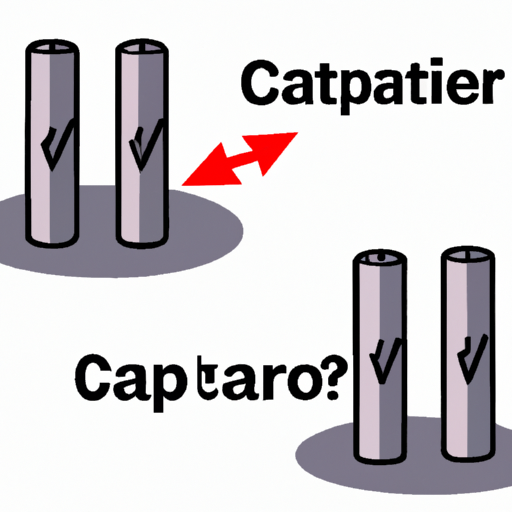An article to help you understand what a capacitor company is
Understanding Capacitor Companies: An Informative Guide
I. Introduction
In the world of electronics, capacitors play a crucial role in the functionality and efficiency of devices. A capacitor is a passive electronic component that stores and releases electrical energy, making it essential for various applications, from consumer electronics to industrial machinery. This article aims to provide a comprehensive understanding of capacitor companies, their significance in the electronics industry, and the innovations shaping their future.
II. What is a Capacitor?
A. Basic Definition and Function
A capacitor is an electronic component that stores electrical energy in an electric field. It consists of two conductive plates separated by an insulating material known as a dielectric. When voltage is applied across the plates, an electric field is created, allowing the capacitor to store energy. When the voltage is removed, the capacitor can release this stored energy, making it vital for smoothing out voltage fluctuations, filtering signals, and providing power during brief interruptions.
B. Types of Capacitors
Capacitors come in various types, each suited for specific applications:
1. **Ceramic Capacitors**: These are widely used due to their small size, low cost, and stability. They are ideal for high-frequency applications.
2. **Electrolytic Capacitors**: Known for their high capacitance values, these capacitors are often used in power supply circuits. They are polarized, meaning they have a positive and negative terminal.
3. **Film Capacitors**: Made from thin plastic films, these capacitors are known for their reliability and stability. They are commonly used in audio and power applications.
4. **Tantalum Capacitors**: These capacitors offer high capacitance in a small package and are often used in portable electronics. They are also polarized.
5. **Supercapacitors**: Also known as ultracapacitors, these devices can store a large amount of energy and are used in applications requiring rapid charge and discharge cycles, such as energy storage systems.
C. Key Specifications and Parameters
Understanding the specifications of capacitors is essential for selecting the right component for a specific application:
1. **Capacitance**: Measured in farads (F), capacitance indicates the amount of charge a capacitor can store.
2. **Voltage Rating**: This is the maximum voltage a capacitor can handle before it risks breakdown.
3. **Equivalent Series Resistance (ESR)**: This parameter indicates the internal resistance of the capacitor, affecting its efficiency and heat generation.
4. **Temperature Coefficient**: This specification describes how the capacitance value changes with temperature, which is crucial for applications in varying environmental conditions.
III. The Role of Capacitor Companies
A. Manufacturing Processes
Capacitor companies are responsible for the production of these essential components. The manufacturing process involves several steps:
1. **Raw Materials Used**: The choice of materials, such as dielectric substances and conductive metals, significantly impacts the performance and reliability of capacitors.
2. **Production Techniques**: Advanced techniques, including thin-film deposition and automated assembly, are employed to ensure precision and efficiency in manufacturing.
B. Research and Development
Innovation is key in the capacitor industry. Companies invest heavily in research and development to create new technologies and improve existing products. This includes:
1. **Innovations in Capacitor Technology**: Developing capacitors with higher energy densities, faster charge/discharge rates, and improved thermal stability.
2. **Custom Capacitor Solutions**: Many companies offer tailored solutions to meet specific customer needs, enhancing the versatility of capacitors in various applications.
C. Quality Control and Testing
Quality assurance is critical in the capacitor industry. Companies adhere to strict standards and certifications to ensure reliability and performance. This includes:
1. **Standards and Certifications**: Compliance with international standards, such as ISO and IEC, ensures that capacitors meet safety and performance requirements.
2. **Importance of Reliability in Capacitors**: Given their role in critical applications, the reliability of capacitors is paramount. Rigorous testing processes are implemented to identify potential failures before products reach the market.
IV. Major Players in the Capacitor Industry
A. Overview of Leading Capacitor Manufacturers
The capacitor industry is home to several major players, each contributing to the market's growth and innovation:
1. **Murata**: A leading manufacturer known for its ceramic capacitors, Murata is at the forefront of capacitor technology, focusing on miniaturization and high-performance solutions.
2. **Vishay**: With a diverse product range, Vishay produces various capacitors, including tantalum and film capacitors, catering to multiple industries.
3. **KEMET**: Specializing in electrolytic and tantalum capacitors, KEMET is recognized for its commitment to quality and innovation.
4. **Nichicon**: A prominent player in the electrolytic capacitor market, Nichicon is known for its high-quality products and extensive research efforts.
B. Emerging Companies and Trends
The capacitor industry is also witnessing the rise of startups and niche players focusing on innovative solutions. These companies are often at the forefront of technological advancements, exploring new materials and designs to enhance capacitor performance.
V. Applications of Capacitors
Capacitors are integral to a wide range of applications, including:
A. Consumer Electronics
From smartphones to televisions, capacitors are essential for power management, signal filtering, and energy storage in consumer electronics.
B. Automotive Industry
In modern vehicles, capacitors are used in various systems, including power steering, braking, and infotainment systems, contributing to improved performance and efficiency.
C. Industrial Applications
Capacitors play a vital role in industrial machinery, providing power factor correction, energy storage, and signal processing capabilities.
D. Renewable Energy Systems
In renewable energy applications, capacitors are used for energy storage and management, helping to stabilize power output from sources like solar panels and wind turbines.
E. Telecommunications
Capacitors are crucial in telecommunications equipment, ensuring signal integrity and power stability in communication networks.
VI. Challenges Faced by Capacitor Companies
Despite their importance, capacitor companies face several challenges:
A. Supply Chain Issues
Global supply chain disruptions can impact the availability of raw materials and components, affecting production schedules and costs.
B. Competition and Market Saturation
The capacitor market is highly competitive, with numerous players vying for market share. Companies must continuously innovate to stay ahead.
C. Environmental Regulations and Sustainability
As environmental concerns grow, capacitor companies are under pressure to adopt sustainable practices and develop eco-friendly products.
D. Technological Advancements and the Need for Adaptation
Rapid technological changes require capacitor companies to adapt quickly, investing in research and development to keep pace with industry demands.
VII. Future Trends in the Capacitor Industry
The capacitor industry is poised for significant growth and transformation in the coming years:
A. Growth of Electric Vehicles and Their Impact on Capacitor Demand
The rise of electric vehicles (EVs) is driving demand for advanced capacitors, particularly supercapacitors, which are essential for energy storage and management in EV applications.
B. Advancements in Capacitor Technology
Innovations such as higher energy density capacitors and miniaturization are expected to enhance the performance and applicability of capacitors across various sectors.
C. The Role of Capacitors in Renewable Energy and Energy Storage Solutions
As the world shifts towards renewable energy, capacitors will play a crucial role in energy storage systems, helping to stabilize power supply and improve efficiency.
VIII. Conclusion
Capacitor companies are vital players in the electronics industry, providing essential components that enable the functionality of countless devices. As technology continues to evolve, these companies will play a crucial role in shaping the future of electronics, from consumer products to renewable energy systems. Understanding the intricacies of capacitors and the companies that produce them is essential for anyone interested in the electronics field. We encourage further exploration and understanding of capacitors and their applications, as they are integral to the technology that powers our world.
IX. References
For those interested in delving deeper into the world of capacitors and capacitor companies, consider exploring the following resources:
1. "Capacitors: Principles and Applications" by John Smith
2. "The Art of Electronics" by Paul Horowitz and Winfield Hill
3. Industry reports from market research firms such as Gartner and IDC
4. Technical papers and publications from leading capacitor manufacturers
By understanding the role of capacitors and the companies that produce them, we can appreciate the complexity and innovation that drive the electronics industry forward.







